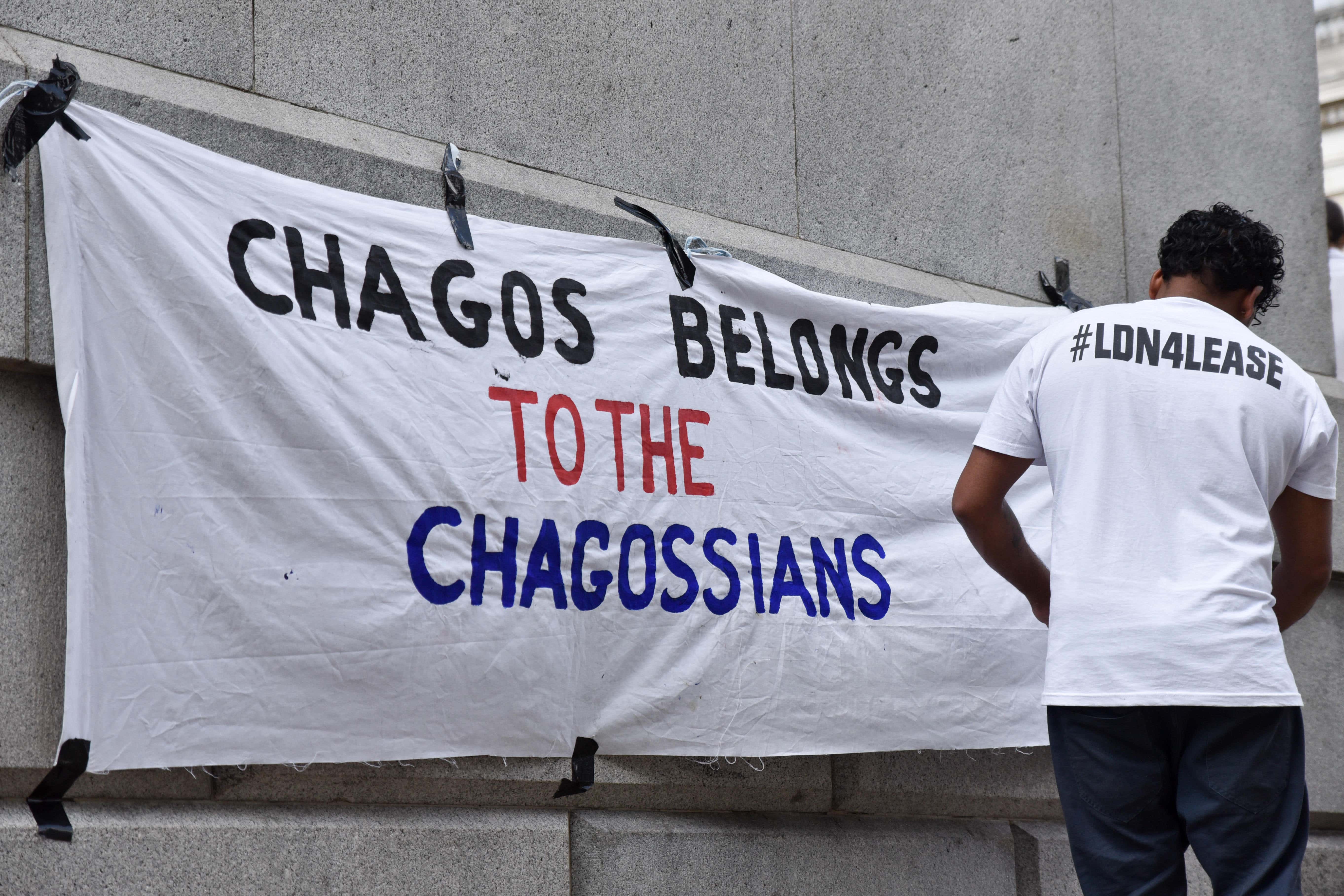UK actions over Chagos Islands ‘crimes against humanity’, says rights group
Chagossians have spent decades fighting to return to the islands after being forced to leave in the 1960s and 1970s to make way for a military base.

Forcing the people of the Chagos Islands to leave their homeland to make way for a military base and blocking their return are crimes against humanity, according to a new report.
Both the UK and US governments should provide full reparations to the Chagossian people, including their right to return to live in their homeland in the Chagos Archipelago in the Indian Ocean, after forcing them out in the 1960s and 1970s, Human Rights Watch (HRW) said.
The group also reported on “persecution by the UK on the grounds of race and ethnicity” in its 106-page report – That’s When The Nightmare Started: UK And US Forced Displacement Of The Chagossians And Ongoing Colonial Crimes – which included interviews with Chagossians, UK, US and Mauritian officials as well as a wide-ranging document review.
The UK is today committing an appalling colonial crime, treating all Chagossians as a people without rights. The UK and the US, who together expelled the Chagossians from their homes, should provide full reparations for the harm they have caused
HRW identified three crimes against humanity against the Chagossian people, including a continuing colonial crime of forced displacement, the prevention of their return home by the UK and their persecution by the UK on the grounds of race and ethnicity.
Chagossians have spent decades fighting to return to the islands after more than 1,000 people were forced to leave in the 1960s and 1970s so that a US military base could be built on Diego Garcia, the largest of the islands.
Clive Baldwin, HRW’s senior legal adviser and lead author of the report, said: “The UK is today committing an appalling colonial crime, treating all Chagossians as a people without rights.
“The UK and the US, who together expelled the Chagossians from their homes, should provide full reparations for the harm they have caused.”
The UK and US abandoned the expelled Chagossians in Mauritius or Seychelles, where they lived in poverty which triggered other rights abuses and discrimination, the HRW said.
Chagossians told researchers that some of them, including children, had died from the economic hardship which they believed was linked to the emotional devastation of being torn from their homeland.
Many later moved to the UK after the government granted them citizenship. Those in the UK described various forms of discrimination, including in housing and work, the report found.
Thousands of Chagossians now live around the world, mostly in Mauritius, the UK and Seychelles.
The Chagossians are predominately descendants of enslaved people, forcibly taken to the then-uninhabited Chagos Islands under French and then British rule in the 18th and 19th centuries. Chagos was administered by the UK colonial administration as part of Mauritius.
The Chagossians are a distinct people with their own Chagossian creole language, music and culture, who have lived for several generations on the main Chagos islands and atolls of Diego Garcia, Peros Banhos and Salomon.
They are an indigenous people under African and international human rights standards, HRW stated.
HRW alleges the UK and US governments have treated Chagossians as a people without rights, co-operating to permanently displace them from their homeland without consultation or adequate compensation.
HRW said the UK split Chagos from Mauritius and declared Chagos a new colony in 1965, the British Indian Ocean Territory (BIOT), now the UK’s last colony in Africa.
In November, the UK agreed to begin negotiations with Mauritius over the future of the Chagos Islands, backing down on its long-standing resistance to doing so after international pressure.
Foreign Secretary James Cleverly said the UK wanted to broker an agreement backed by international law to “resolve all outstanding issues” over the Indian Ocean archipelago.
He said Britain and Mauritius had agreed that any outcome would ensure the effective operation of the joint US/UK military base on Diego Garcia.
We respect the work Human Rights Watch does around the world, but we categorically reject this characterisation of events
The United Nations’ highest court, the International Court of Justice, in The Hague, has ruled that the UK’s administration of the territory is “unlawful” and must end.
Mauritius, which won independence from the UK in 1968, maintains the islands are its own and Chagossians have fought for their return in the British courts.
HRW has called on the UK and US to provide financial compensation to all Chagossians, of every generation, for crimes committed against them and guarantee that similar crimes will not happen again.
This could include full apologies from both governments, including the British monarch, it suggests.
A Foreign Office spokesman said: “We respect the work Human Rights Watch does around the world, but we categorically reject this characterisation of events.
“The UK has made clear its deep regret about the manner in which Chagossians were removed from BIOT in the late 1960s and early 1970s.
“We remain committed to supporting Chagossians, including through a significant support package and our new British citizenship route for Chagossians launched last November.”
Bookmark popover
Removed from bookmarks